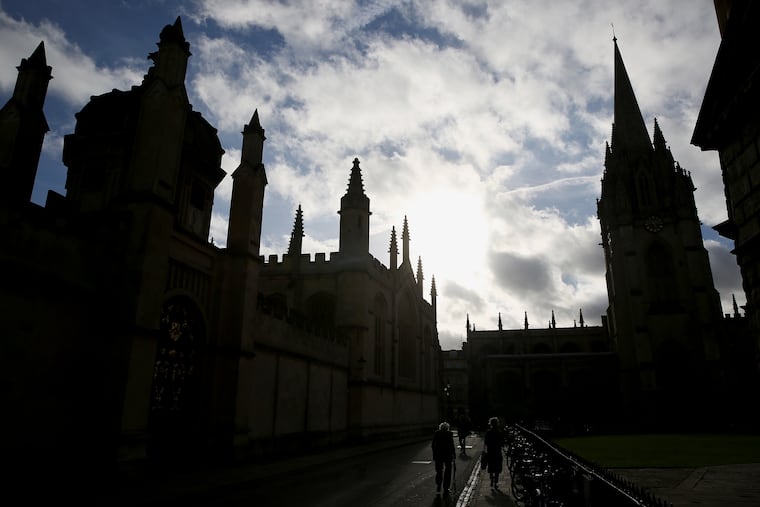Phoenixville native and Harvard senior awarded Rhodes Scholarship; Penn, Princeton students also winners
Olivia McGinnis, a 2016 Phoenixville Area High School graduate now attending Harvard, is one of 32 Americans selected this year for the prestigious scholarship to Oxford University.

A senior at Harvard University, Olivia McGinnis of Phoenixville, was selected over the weekend for the prestigious Rhodes Scholarship. She was one of 32 Americans awarded the honor, chosen from a pool of 963 applicants nominated by their colleges and universities. They will begin studying at Oxford University in England in September 2020.
McGinnis, 21, who was notified of her selection at an event Saturday night with other finalists from the region, said she was “excited and proud and shocked.”
“All the other finalists were just so kind,” she said in a phone interview Sunday. “They all wanted good things in the world. .... To be chosen among them is the real honor.”
McGinnis was chosen as one of two winners from her district. The other was Stephen Damianos, a 2019 graduate of the University of Pennsylvania who is from North Hampton, N.H. Committees in 16 districts across the U.S. each selected two winners after interviews Friday and Saturday.
Other Americans chosen from area schools included Serena Alagappan of Manhattan and Ananya Malhotra of Atlanta, both seniors at Princeton University.
They will join scholars selected from more than 60 countries, including Penn senior Nurul Ezzaty Binti Hasbullah, who is from Selangor, Malaysia, and applied through her home country, according to the university.
The American group is notable for its diversity, with a majority-minority composition for the third consecutive year, according to the Rhodes Trust. It said that about half of the scholars are first-generation Americans, and one is the first transgender woman awarded a Rhodes Scholarship.
Rhodes scholars are chosen based on academic excellence, according to the trust, but also “great personal energy, ambition for impact, and an ability to work with others and to achieve one’s goals. In addition, a Rhodes Scholar should be committed to make a strong difference for good in the world.”
The award covers all university fees, as well as expenses and transportation to England. The value averages about $70,000 a year.
The child of two artists — her father designs furniture, and her mother paints — McGinnis describes herself as a “scientist in a very creative household.”
She was interested in physics while at Phoenixville Area High School, and was drawn to neuroscience at Harvard because “it allowed me to kind of ask questions about humanity. I’m really interested in the question of what is the self.” She also is editor-in-chief of a magazine that aims “to show the similarities between science and art.”
“Often, what I’m trying to do is make science more accessible to nonscientists,” McGinnis said.
At Harvard, McGinnis is studying the escape response of zebra fish. McGinnis points to broader implications of her research, which examines the fish’s spatial awareness — “a very profound thing for a zebra fish to know and use.”
“I think it’s applicable to understanding how we navigate our external worlds,” she said.
At Oxford, she plans to study experimental psychology, transitioning from zebra fish to exploring learning and memory. “I’d like to do more human questions for a while, and see what I like better when I do my Ph.D," she said.
Her current research focus doesn’t elicit the same kind of response as telling people “I’m studying Alzheimer’s disease,” McGinnis said.
But, she said, there is a “whole world of research out there" that is “more basic in nature and will inform these pressing questions for society.”